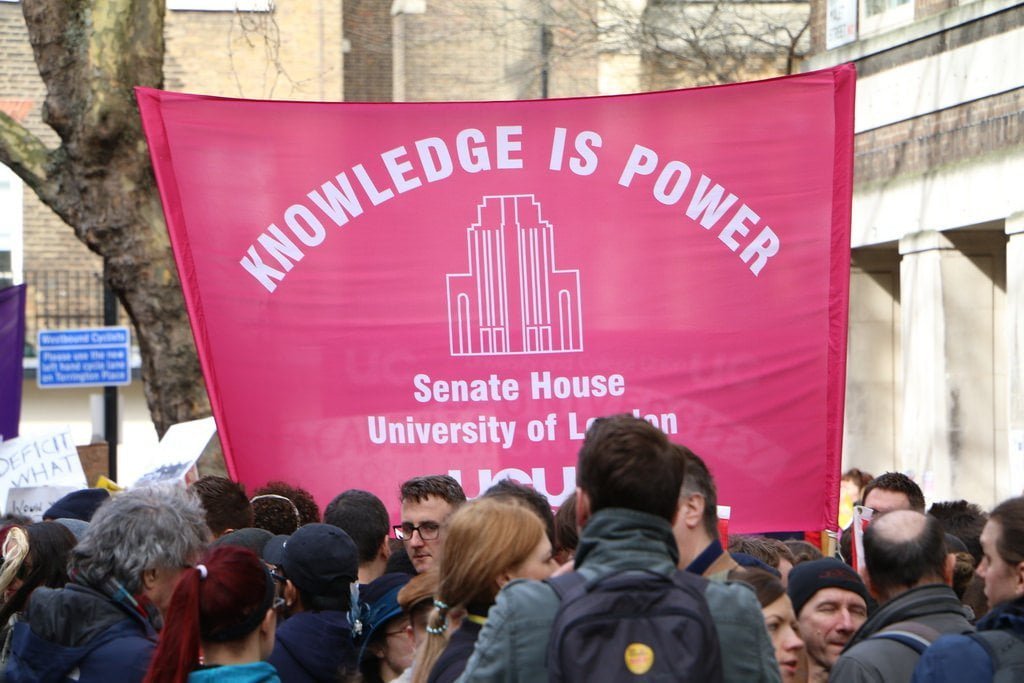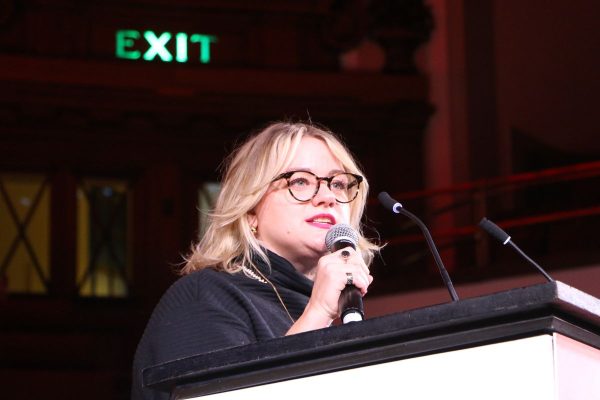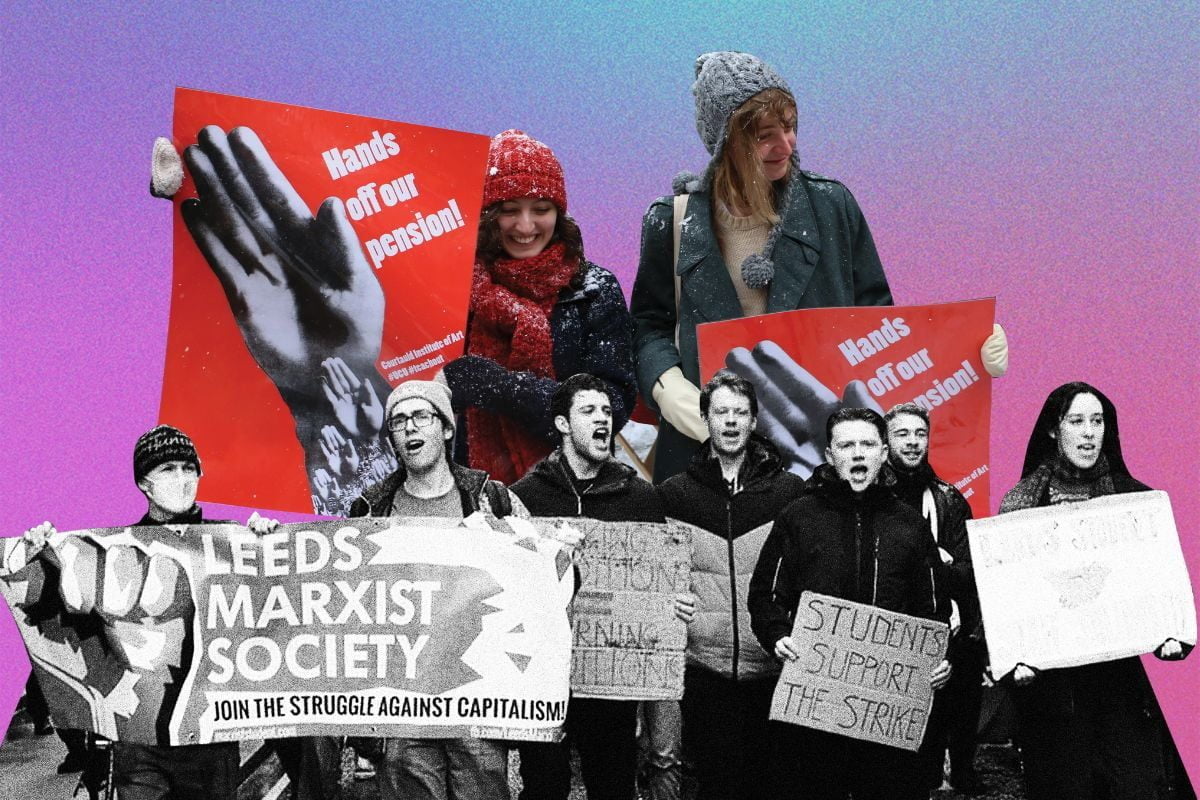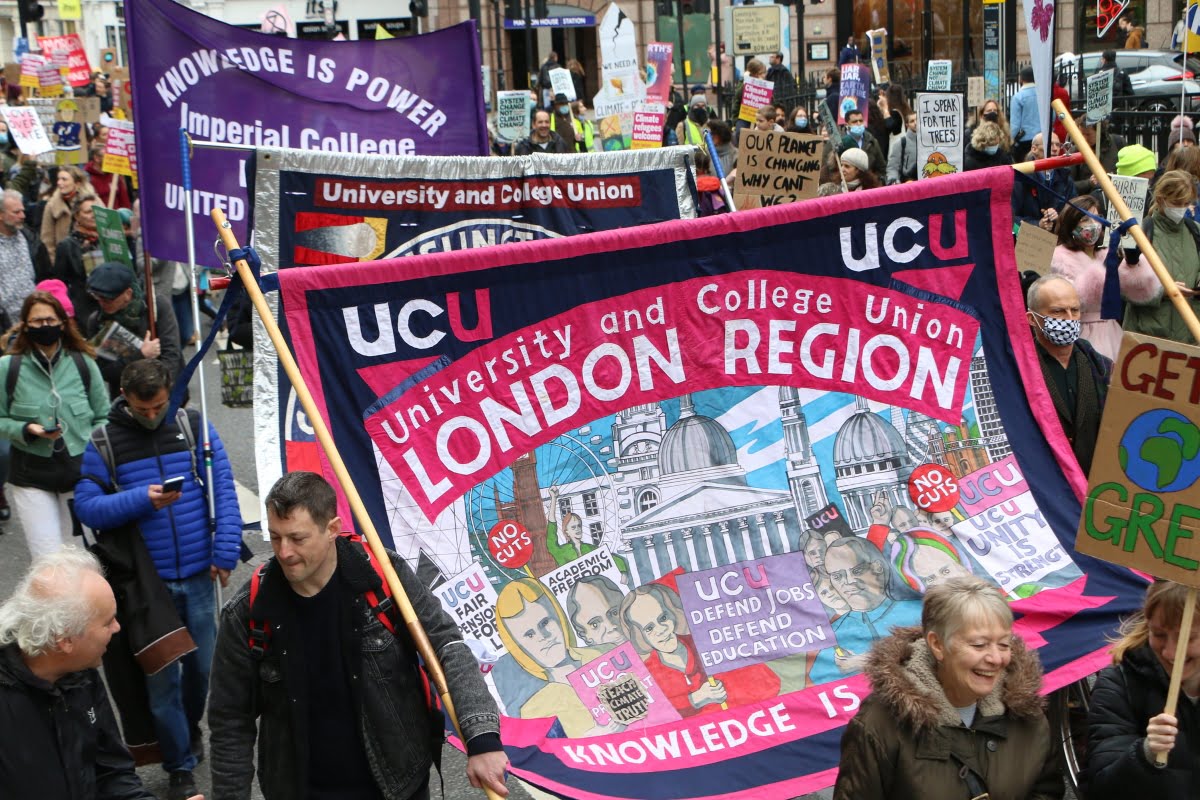The UCU has called for 18 days of strike action at 150 universities across February and March.
This follows the union’s rejection of the paltry pay offer by the UCEA (Universities and Colleges Employers’ Association) of just 5%. This equates to a 15% real-term wage cut between 2022-24. Coming on top of a decade of pay freezes, this attack could push a huge section of higher education workers into poverty.
This latest wave of action has already begun. The first strike day on 1 February saw UCU members joining hundreds of thousands of our sisters and brothers in other unions.
We should seek to coordinate more days of action like 1 February. After all, our struggles are all part of the same fight – whether in Royal Mail, the schools, the civil service, the railways, or elsewhere. UCU members do not stand alone!
‘Escalation’
 It is welcome that the union’s HEC (higher education committee) has called for further strike action to defend university workers and to fight for a real pay rise.
It is welcome that the union’s HEC (higher education committee) has called for further strike action to defend university workers and to fight for a real pay rise.
At the same time, it is worth reflecting on the current strategy. 18 days of walkouts is more than was declared last year. This will undoubtedly cause considerable disruption.
Nonetheless, although members will be going out for longer across all universities, this is still a repeat of the past strategy of calling ‘escalating action’ in the form of distinct blocks of strikes.
But the past four years of UCU strikes show that the bosses will respond to such strategies with intransigence rather than concessions.
The employers, meanwhile, have genuinely escalated their tactics. They have moved from merely stonewalling the union to launching direct attacks on UCU members.
This was displayed in full force last year, with the threat of 100% pay deductions across multiple institutions for staff taking part in the national marking and assessment boycott (MAB) at the end of the spring term.
Already, QMUL members are being threatened with 100% deductions for 39 days of pay, as a result of going on strike for just three days in November 2022. This is a sign of the belligerent and bullying stance that UCU members can expect from university bosses nationally.
Democracy?
 This brings us to the question of the moment. How is it that our union is pursuing the same strategy for the fourth year in a row, despite all the experiences of previous strikes?
This brings us to the question of the moment. How is it that our union is pursuing the same strategy for the fourth year in a row, despite all the experiences of previous strikes?
Sadly, this choice of action was not the result of a democratic debate. It was the result of a top-down scare campaign run by the general secretary, Jo Grady. This was scandalously broadcast across social media, including on the official UCU Twitter account.
The aim of this campaign was to overturn the democratic decision made by our HEC in October, who chose to escalate the struggle to indefinite strike action at the start of the current term.
Despite this intervention from Grady, indefinite action won 31% support in a vote at a national branch delegate meeting in early January.
That almost a third still backed this strategy – in the context of a one-sided fear campaign from the top – shows the strength of feeling among members.
This vote was also over continuous indefinite action. The possibility of ‘discontinuous indefinite action’, which had been discussed in many branches, and which had been met with some support, was not given a hearing at all at this meeting.
In any case, it is no wonder that members were unwilling to vote for a serious escalation of the dispute. This would require bold leadership – one that could confidently argue for such a militant strategy within the union and in public. But the current leadership has already torpedoed such a move.
Militancy
UCU Marxists support an indefinite strike. We have argued for this consistently for some time. Along with coordinating action with other unions, we believe an all-out approach is the strongest strategy for bringing about a clear victory.
In fact, given the huge uncertainty that this would cause the employers, indefinite action would likely force them to retreat in a shorter space of time.
Nevertheless, the 18 days that have been called remain an escalation compared with last year. This should be used to its fullest extent. We need large picket lines and demos to boost morale – and to show the bosses that we are united and determined to win.
The union should keep the option of indefinite action open, however, as a card in our hand that we can play should these 18 days not suffice. We cannot afford to repeat the mistakes of last year. We must be ready to up the ante when the bosses go on the attack.
This means starting a serious public fundraising campaign to allow for extended strike pay. If we do not prepare in advance, the bosses will know that they can ultimately outlast us in this fight.
It also means building support for taking militant action at a rank-and-file level alongside our sister unions in the higher education sector. This should include the formation of local cross-union strike committees to mobilise and coordinate such action.
Fightback
 Behind their bravado, the bosses are terrified of the mandate that we have for strike action. We must be prepared to use this historic mandate to its fullest extent.
Behind their bravado, the bosses are terrified of the mandate that we have for strike action. We must be prepared to use this historic mandate to its fullest extent.
We are part of a wider strike wave that is showing no signs of slowing. Now more than ever, bold leadership is essential.
Upcoming NEC elections in UCU, in this respect, will play an important role in determining the future direction of the union.
In these, it is important that left candidates learn the lessons of these disputes. This means putting forward a programme of democratic demands to ensure that members have genuine control over their union and their struggles.
But beyond these internal reforms, we need union leaders who are class fighters.
Grassroots members are showing incredible resolve, militancy, and willingness to sacrifice. We deserve a determined leadership that matches this, and that is willing to go all the way.
Above all, we need a leadership capable of turning the current struggle into a mass campaign against marketisation and profiteering within our sector – one that is prepared to fight for a fully-funded, nationalised higher education sector, with staff and students in control.






